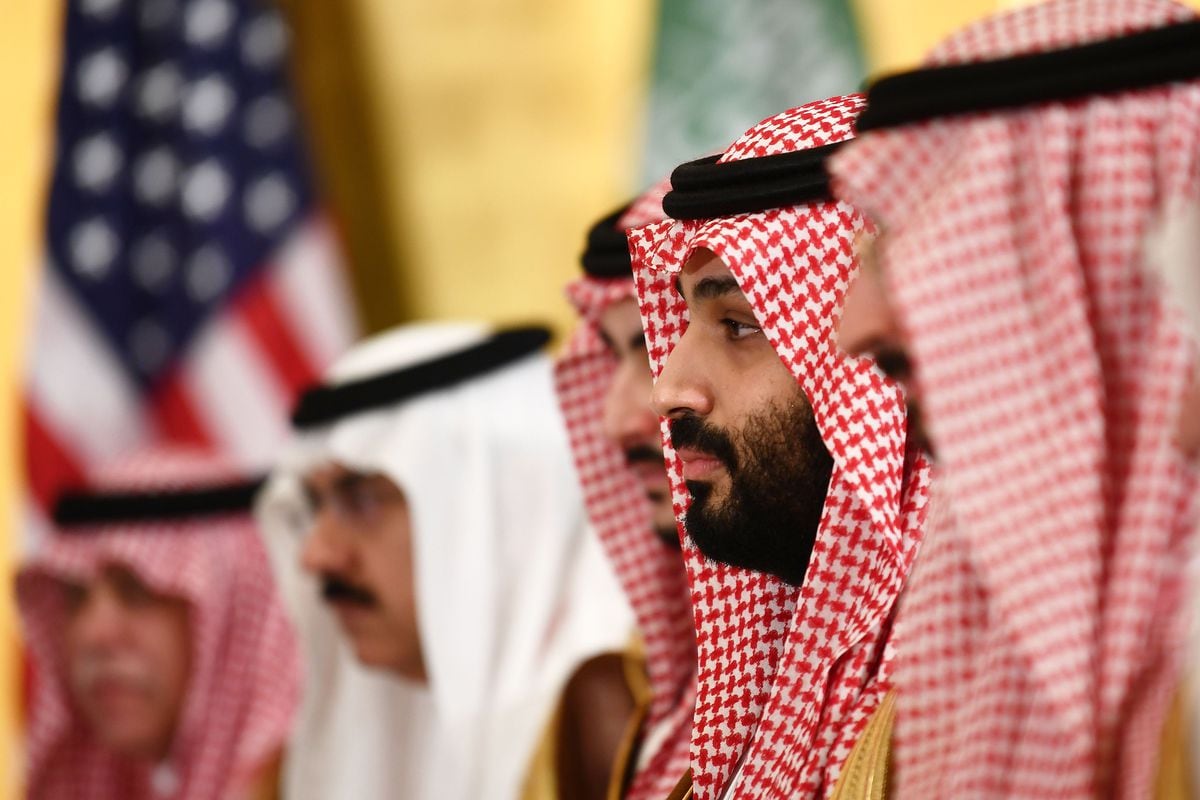Saudi Crown Prince Mohammed bin Salman in 2019.BRENDAN SMIALOWSKI (AFP/Getty Images)
The bet of Saudi Telecom Company (known as STC Group) for Telefónica is just one more piece of the new puzzle that the petromonarchy is building, with Europe, the West and the rest of the world between eyebrows and eyebrows. Its objective is none other than to diversify its economic structure, still tremendously dependent on crude oil. Until now, its presence in Spanish companies was limited: the highlight had been the purchase, in 2007, of a large plastics manufacturing plant in Cartagena, undertaken through the state-owned Sabic. Telefónica is something else: one of the largest companies in the country, despite its low hours on the stock market in recent times.
The Saudi authorities – a dictatorship marked by repression and its lack of respect for human rights – launched seven years ago an ambitious plan, Vision 2030, which contemplated its landing in a myriad of areas, not only business, always at the stroke of a checkbook: football – the Spanish Super Cup has been held there since 2020 and several figures of the Spanish league have packed their bags for Riyadh in recent months – to the culture; From science to leisure. The big backer of all these projects is Crown Prince Mohammed bin Salman, a thirty-year-old lover of technology and determined that his country — closed, very closed; Unequal, very unequal—take a giant leap international showcase.
More information
Saudi Arabia: the birth of a superpower in the desert with petrodollars
With 36 million inhabitants and a trillion euros of GDP (a figure similar to that of the Netherlands and a third less than Spain), the Desert Kingdom, ruled with an iron fist by the family that gives it its name – the Saud – is, by far, the largest economy in the Gulf. Despite the recent drive to diversify, oil is – and will remain for a long time – its main source of income: it is the largest exporter of crude oil on the planet. The state oil company, Aramco — one of the largest companies on the planet — went public shortly before the pandemic, but more than 90% of its shares remain in state hands.
"They have been immersed for seven years in a process of change in the image they project to the rest of the world," Sanam Vakil, director of the program for the Middle East and North Africa at the London think tank Chatham House, recently summarized in conversation with this newspaper. "Its objective is twofold: to diversify its economy to anticipate a future in which oil will be residual and to achieve an internal change of mentality, with a certain social liberalization and an increase in the participation of women in the labor market."
The Saudi precedent
The Saudi strategy has a precedent, albeit on a much smaller scale, in Qatar, which is heavily dependent on oil and gas revenues. The Qatari commitment to large Spanish listed companies goes back a long way: its sovereign fund entered the capital of Iberdrola in 2011 and today has a stake close to 9%. Also 19% of the real estate Colonial. Its flag carrier, Qatar Airways, has just over 25% of the Spanish-British group of airlines IAG (to which belong, among others, Iberia and British Airways). Outside the Ibex, Sheikh Hamad Bin Jassim Bin Jaber al Thani came to have 11% of El Corte Inglés, although now he barely controls 5.5%. From this Tuesday, Qatar's bet on Spain is joined by its neighbor Saudi Arabia.
Follow all the information of Economy and Business on Facebook and Twitter, or in our weekly newsletter
Subscribe to continue reading
Read without limits
Read more
I'm already a subscriber

